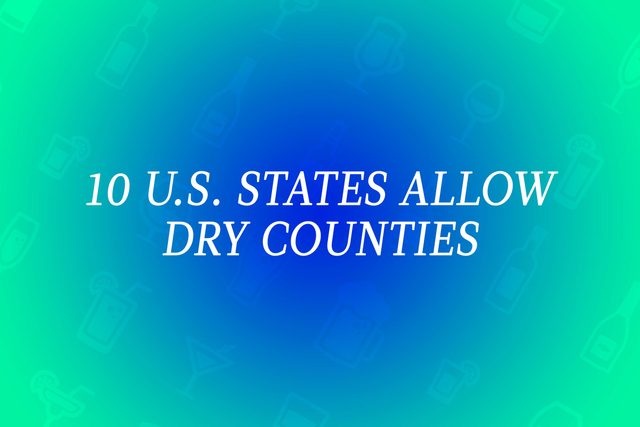
How dry am I?
According to the United States Geological Survey (USGS), America is comprised of 3,141 counties and county-equivalents (such as parishes in Louisiana) and there are still a number of dry counties remaining, where selling alcohol is against the law. Ten states allow dry counties and an additional 15 allow for “partially dry” ones. So, as you tool along, it will make sense to check for local laws that might interfere with your buzz, as you responsibly tour the country.
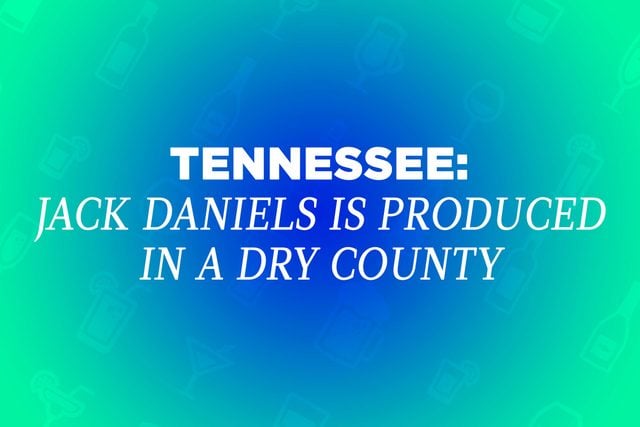
Kentucky: Speed bumps along the Bourbon Trail
There’s lots of irony out there. Kentucky’s famed bourbon trail meanders through a number of dry counties, so you’ll need to check for the counties where you can legally buy souvenirs to remind you of your happy distillery tours. The same goes for Lynchburg in Moore County, Tennessee, where Jack Daniels is produced. It’s also a dry county. Go figure… (Check out the strangest laws in every state.)
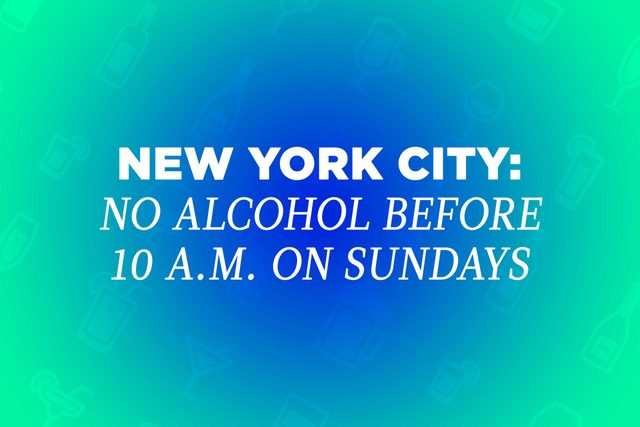
NYC: An appletini in the Big Apple?
Manhattan and surrounding boroughs that make up New York City have their own unique liquor laws. Since the Great Depression, restaurants could not legally serve alcohol and stores could not sell it on Sundays before noon. Things have relaxed a bit in the fall of 2016 though. Now you can begin sipping Bloody Marys and mimosas at 10 in the morning. Bottoms up! You’ll never believe these hilarious international laws are real, either.
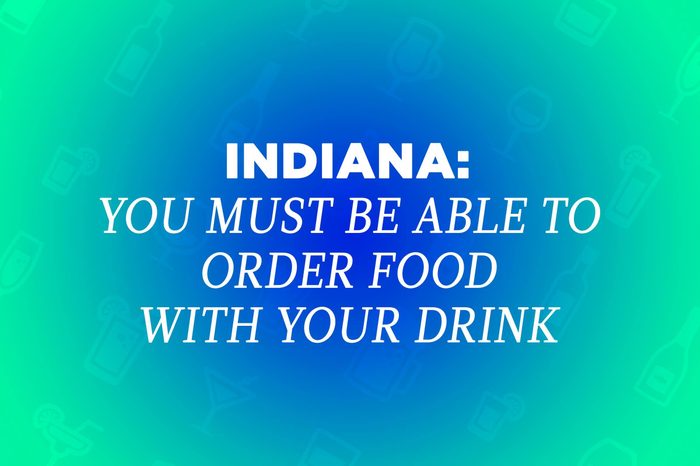
Cold beer here!
You would think you could simply breeze into any package store in America and buy some cold beer. Not so in Indiana, where it is illegal for a convenience store to sell chilled beer—you have to go to a liquor store to buy a cold one. (Though you can buy room temperature beer at convenience stores.) One would suppose these laws are to discourage thirsty customers from popping open a cold can right on the street or to prevent people from driving around while guzzling chilled brewskies.
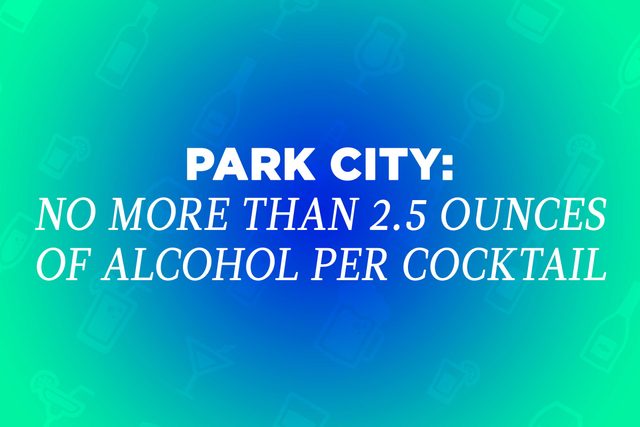
Park City: Parking it on a bar stool
Faith runs deep in the state of Utah, where there are all sorts of quirky laws that pertain to the consumption of liquor, wine, and beer. In the popular ski town of Park City, for example, mixed drinks cannot contain more than 2.5 ounces of alcohol. You cannot order a double, but you can order two drinks at a time. Also, you legally have to order food along with your cocktail. Potato skins, chips and salsa—you don’t have to twist our arm to get us to eat our favorite bar food. (By the way, you might be breaking these outrageous marriage laws right now.)
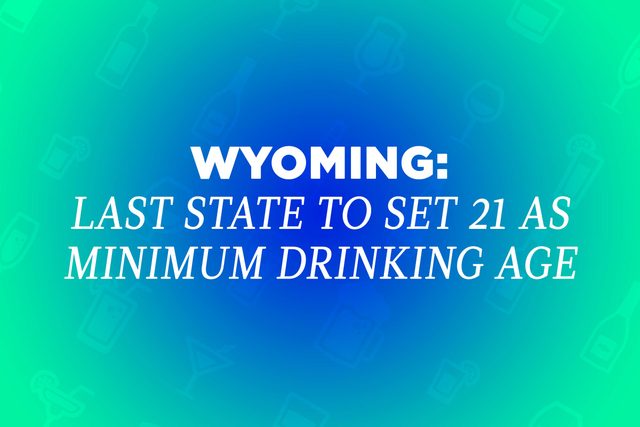
Forever 21
In 1988, Wyoming was the last state in the union to raise its legal drinking age to 21. Across the nation, one can vote at age 18, join the U.S. military at 17, legally drive a car when you turn 16 (in most states) but you have to have spent 204 months and one minute on earth to legally imbibe in America.
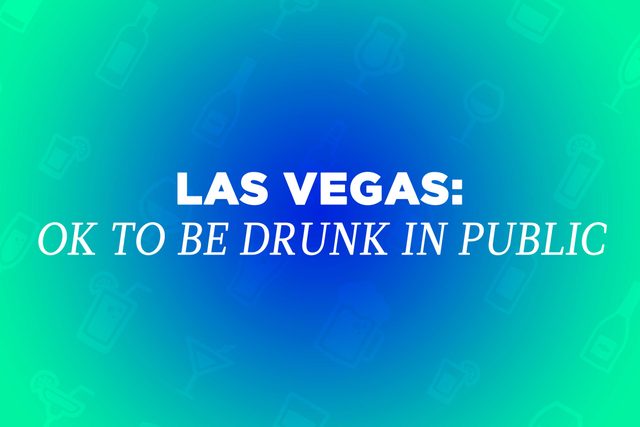
What happens in Vegas
Good news for tipplers in Nevada where bars can (and do) stay open 24/7 and liquor can be sold at supermarkets and convenience stores. Open containers are permitted in Las Vegas and it’s famed Strip. Also, state law explicitly states that it is not a crime to be drunk in public because drunkenness is considered a ‘health problem’. So, “cheers to your health” while in Vegas.
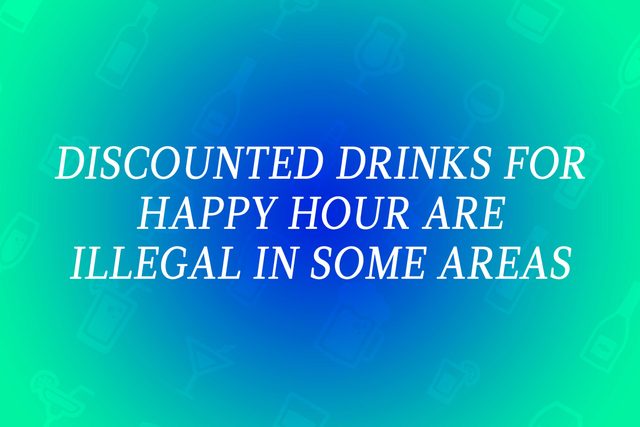
Not-so-happy hour
In some areas, it’s not legal for watering holes to sell discounted drinks during certain times of the day—so-called “happy hours.” So, bargain hunters and those on a budget should check out the local laws to ward off the chances of having to pay $18 (plus tip and tax) for a Cosmo. Here are more everyday things you didn’t realize were illegal.
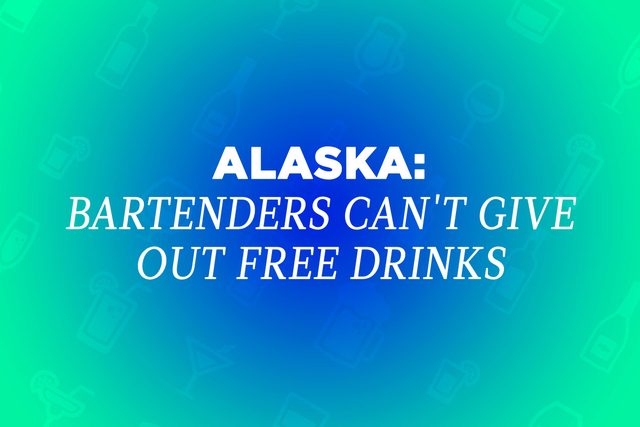
Way up north
If you’re planning on warming up during happy hour while in Alaska—think again. Bars and restaurants selling alcohol can’t offer drinks at “a price less than the price regularly charged for the beverages during the same calendar week,” according to state law. Also, even the friendliest of bartenders can’t give out free drinks. Dang!
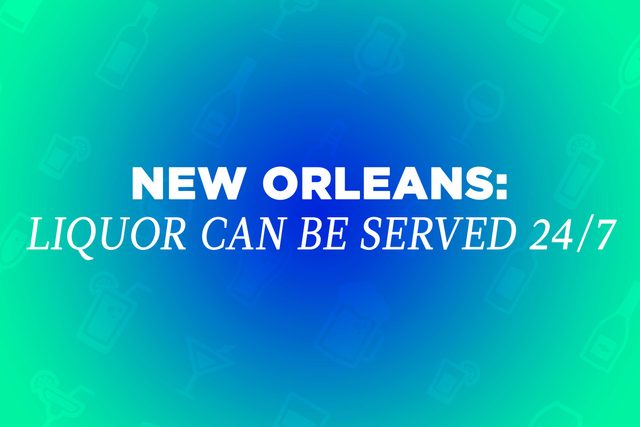
Let the good times roll
Too much fun is perfectly legal in New Orleans, where liquor can be served 24/7. There are no open container laws on the town’s books, but don’t wander around with open cans of beer or drinks in a glass container, which is a dealbreaker. Instead, if you haven’t finished your drink at one place, bars and restaurants will happily give you a plastic “go cup.” There is no such thing as “buzz kill” in NOLA.
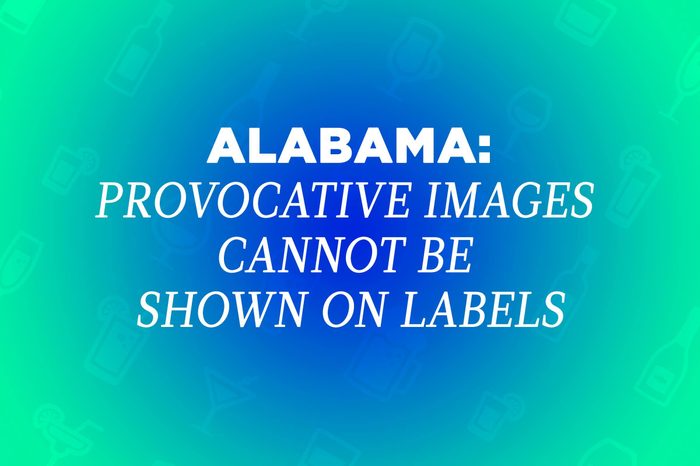
Provocative pints
Believe it or not, a Hahn Family Wines bottle is banned from shelves in the state of Alabama. Why, you ask? In Alabama, advertisements that include “any person(s) posed in an immodest or sensuous manner” are illegal. Apparently the wine’s label, which features a nude nymph, was believed to violate this law. The alcohol had already been sold in the state for three years, but its sales didn’t skyrocket until the ban made headlines. Guess it was worth a shot (pun intended)!
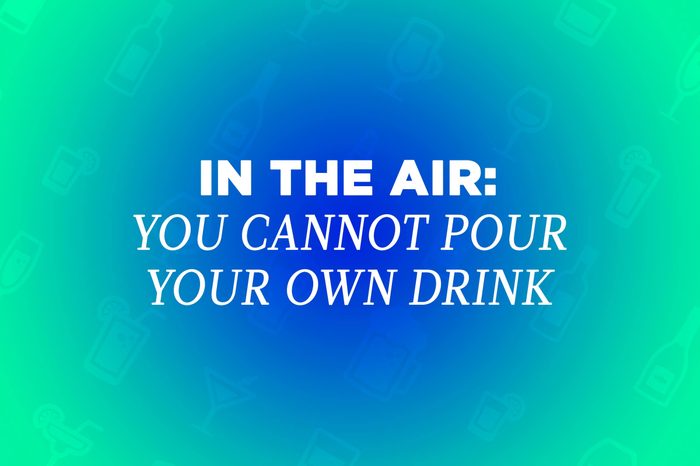
“Spirit” airlines
It’s always happy hour at 35,000 feet in the air. Although passengers are legally allowed to bring alcohol on a flight—no matter where they are in the world—the FAA prohibits them from pouring one out for themselves. Ask a flight attendant to serve your spirits for you (or stick with the pricey mini-bottles). Otherwise, you could be fined anywhere between $3,000 to $5,000. Here are more things you should never do on a plane.

BYOM (Bring Your Own Milk)
Indiana state law requires establishments that sell individual alcoholic drinks to “have food service available, at all times, for at least 25 persons.” At the very least, restaurant and bar menus must offer soup, sandwiches, coffee, milk, and soft drinks. Do you want milk with that margarita? Learn more surprising facts about every state in America.
